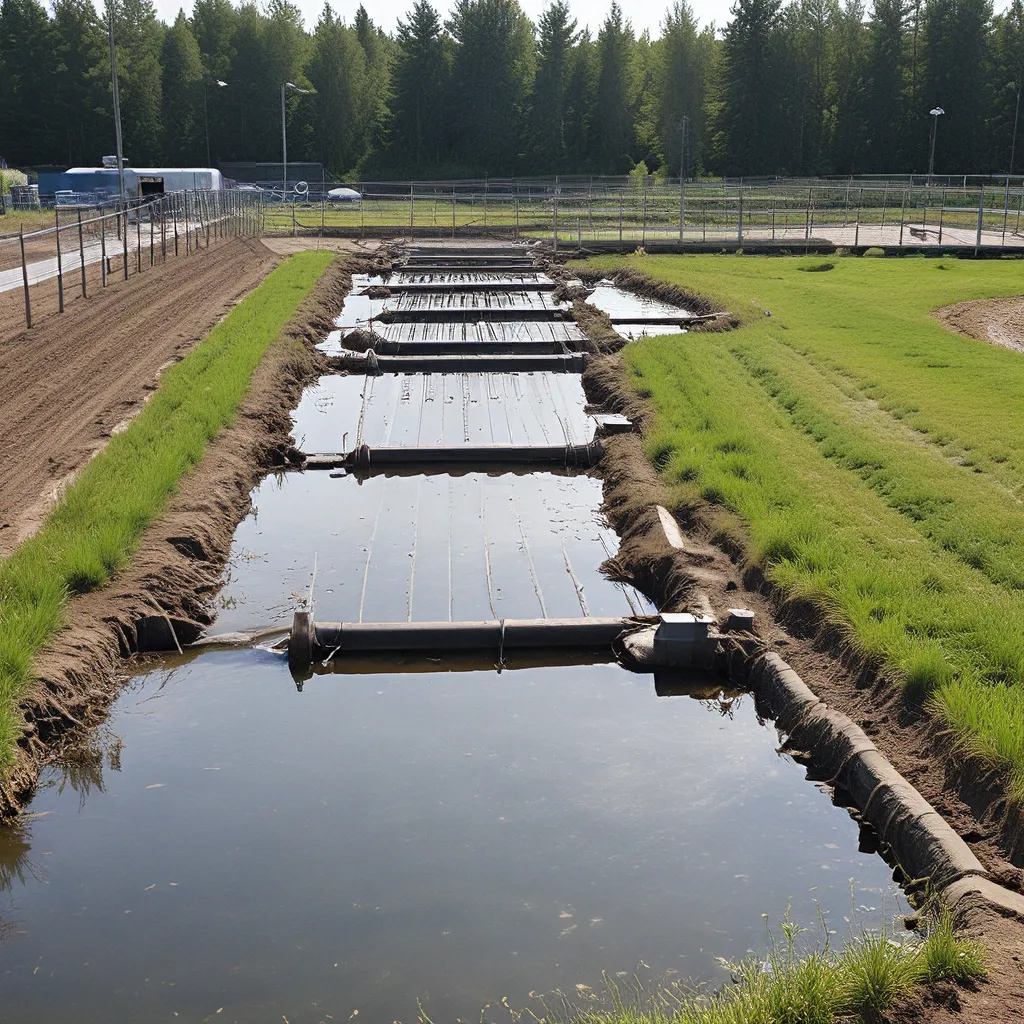
As I delve into the fascinating world of wastewater treatment, I’m reminded of the profound impact this often overlooked process can have on our agricultural future. It’s a topic that’s been gaining increasing attention in recent years, and for good reason.
The Wastewater Conundrum
Wastewater treatment is no longer just about cleaning up our dirty water and safely disposing of the waste. It’s evolved into a critical component of sustainable resource management, with the potential to revolutionize the way we approach agriculture. You see, the very waste that we’ve long viewed as a problem actually contains a treasure trove of valuable nutrients and water – resources that can be reclaimed and repurposed to benefit our food production systems.
Researchers have made significant strides in developing innovative wastewater treatment technologies that can extract and concentrate these precious resources. By doing so, they’re not only reducing the environmental impact of wastewater disposal, but also creating a new stream of sustainable inputs for agriculture.
Closing the Loop
Imagine a future where wastewater treatment plants don’t just clean the water, but also recover the nutrients and recycle them back into the agricultural system. This could include extracting phosphorus, nitrogen, and other minerals from the waste and using them as fertilizers, or even capturing and purifying the water for irrigation.
Sustainable water management experts are already exploring these possibilities, and the results are promising. By closing the loop between wastewater treatment and agriculture, we can create a more circular economy that minimizes waste, conserves resources, and enhances the resilience of our food production systems.
Embracing a Sustainable Future
This vision of sustainable agriculture powered by reclaimed wastewater resources is not just a theoretical concept. It’s a future that’s already taking shape in various parts of the world. Sustainable agriculture practices that incorporate wastewater treatment and nutrient recovery are gaining traction, demonstrating the immense potential of this approach.
As I explore this topic further, I’m struck by the ingenuity and foresight of the individuals and organizations leading the charge. They’re not just solving immediate problems, but crafting a long-term strategy that could fundamentally transform the way we grow our food and manage our water resources.
The Challenges and Opportunities
Of course, transitioning to a wastewater-powered agricultural system is not without its challenges. There are technical hurdles to overcome, regulatory frameworks to navigate, and public perceptions to shift. But the potential benefits are so significant that I can’t help but feel a sense of excitement and optimism.
Just imagine the environmental impact of reducing our reliance on chemical fertilizers and freshwater for irrigation. Or the economic benefits of creating new revenue streams for wastewater treatment facilities and farmers alike. And the social implications of building a more resilient and sustainable food system that can better withstand the pressures of a changing climate.
Conclusion: A Promising Future
As I wrap up my exploration of this topic, I’m left with a deep sense of awe and admiration for the visionaries and innovators who are driving this movement. They’re not just problem-solvers, but opportunity-creators – individuals who see the potential in what others might dismiss as waste.
And I have to say, I’m eager to see where this journey takes us. The future of sustainable agriculture powered by wastewater treatment is one that holds tremendous promise, and I can’t wait to witness the breakthroughs and advancements that will shape it.
If you’re as fascinated by this topic as I am, I encourage you to explore the services and expertise of Alpha Wastewater. They’re at the forefront of this exciting field, and I have no doubt that their insights and innovations will play a crucial role in realizing this vision of a more sustainable, circular future.